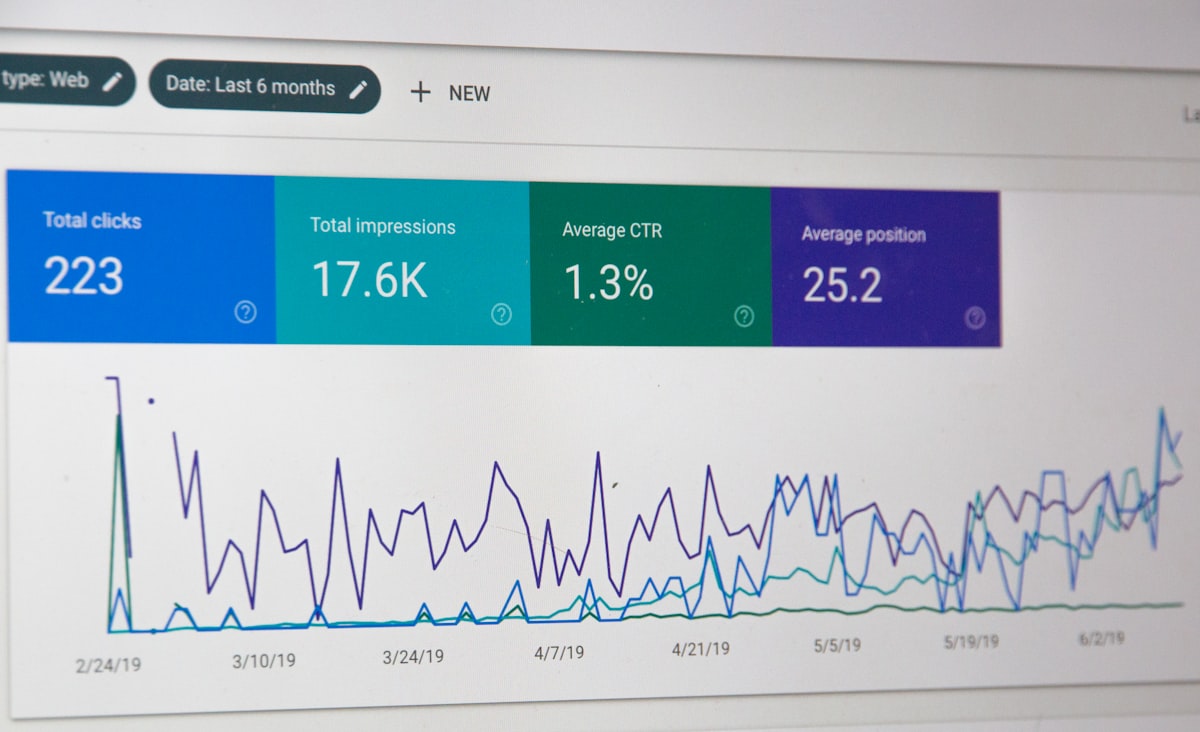What Exactly is SEO?
What exactly is SEO? SEO or search engine optimization is what runs the web. And today we are going to go over in depth what SEO is and some tips and tools you can use right now.

What exactly is SEO? That is a great question and if you want to have any footing in marketing, you need to know what it is. Even if you don’t have to worry about it, using the power of search engines is a mighty skill to wield. You can become a threat to even the largest players in the field and jump to the top of search pages. That sounds cool and all yeah? Sadly it's not as easy as it sounds and can take some time to implement and see the fruits of your labor. It also requires some training in order to become better suited for developing SEO. Though it's never too late to start learning and in this blog, we will go over the basics of SEO and some of its many aspects. All to point you in the right direction.
In This Blog:
- What Is SEO?
- Editorial SEO
- Programmatic SEO
- Technical SEO
- SEO Strategy For Beginners
- Common Mistakes
- Some SEO Tools To Consider
- Conclusion
What Is SEO?
SEO or search engine optimization is basically how Google ranks you on the internet. For example when you google ‘tools to help build my website’ and twenty results come up on the first page. These pages are ranked really well in their SEO, that’s how they reached the top spots. So Google is making sure that when you click one of these top spots you will find valuable content that answers your questions. This is the secret of having good visibility and it's why the rankings change daily, weekly, or even the same hour. Everyone is clambering to be on that first page so the competition is fierce.
Good SEO also leads to better lead generation as more people will see you. As you can see branching out into SEO looks like a no-brainer but how do you know if it's time? Before going deeper into the weeds it’s a good idea to see if you are ready to use SEO to its highest capacity.
Are You Ready For Search Engine Optimization?

Before you spend the time, money, and resources to get a foothold in SEO, it's critical to know if your business is ready for it. But how do you find out? Well, there are three key factors to consider; have a large enough addressable market, have at least 1k organic visits to your site, and have a good amount of referring domains. All together that just sounds confusing, let's break it down bit by bit so it's more digestible.
- Have A Large Enough Addressable Market: This is a slightly complex one but essentially it means do you have a large enough market to use SEO in? For example, there may not be a lot of people Googling “I want to take my real estate license exam” but there are a lot of people that could be taking that exam. So if you target the persona or the demographics of people that could be taking that exam, the addressable market is larger. This example applies pretty much everywhere.
- Have At Least 1k Organic Visits To Your Site: This simply means do you have people finding and landing on your page by themselves through other methods. As we will talk about soon, having only SEO traffic to your site can be negative.
- Have Referring Domains: Finally, all this means is do you have other sites referring to you? This is done mostly through backlinking, which is when another page links back to your page. This is mostly done in blogs but can be done elsewhere.
If you're sitting there wondering, ‘well I match none of these’ or only a few, don’t fret. It does not mean you are out of luck. The only thing that meeting these metrics does is make SEO a lot easier to do. You would see changes a lot quicker and you would grow faster. It is still worthwhile to engage in some SEO practices even if you are a smaller business, you will just see changes a bit slower.
Now that you have a idea of what SEO is, and if it's worth it, let’s talk about the three large types of SEO. One of which is the most important and most used.
Editorial SEO
To start off with the most important type of SEO we have editorial. This is when a writer actually writes content. That can be a blog, social media posting, help articles, and so on. The point is a person wrote something meaningful that can help a user find an answer to their question. This content is also long, high quality, editorial (As the name suggests), and keyword driven. Hubspot is the best example of this.
A quick example would be like this. You look at your industry, say DeFi or decentralized finance for this example. You know people in this area are new and trying to understand the complex nature of blockchain. So you find keywords that people would be searching for and team a writer up with an SEO specialist (or the writer can act as this specialist if you are just starting) and have them start producing long-from blogs. These blogs are well-written and should aim to keep readers on the page for as long as possible while answering lingering questions. If done well, targeting the right topic this would be a blog that would rank well.
This type of SEO has been producing better results recently. If you had to pick one type of SEO to become a master in, it would be this one. The downside, however, is where programmatic SEO is automatic and user-generated taking less time, Editorial can take hours or even days depending on the content. Though it may be hard, it's not worth completely avoiding.
Programmatic SEO

The next type of SEO is Programmatic. This type of SEO is all about posting a massive amount of landing pages on a much larger scale. It is also all user-generated in some cases and an example of this is Zillow or Tripadvisor. And get this, NuOp as well. That’s right, NuOp gives you programmatic SEO with each referral that gets posted. How? Simply put each referral makes its own page that you are connected to and this gives you a link that Google indexes, growing your digital footprint.
How does this type of SEO work? Unlike the slow process of editorial SEO and making good and high-quality content. Programmatic is focused on making a good user experience. Tripadvisor knows that there is a mass amount of people looking for vacation spots, and all of these spots bring with them their own keywords. It would be impossible to do a blog or something similar by hand on each one. So they make countless landing pages on each location quickly. This leads to their links getting clicked the most. As a test, if you google any type of location with ‘vacation’ in the search Tripadvisor will either be number one or the top twenty.
This is a perfect example of Programmatic SEO working. Right under editorial, this method also has been bringing in a lot of great results. Though editorial is still the go-to, programmatic is a great secondary option.
Technical SEO
Last up is Technical SEO which out of all three is the least helpful, and least used method. Though it's the last one we are talking about, it is not completely worthless. None of these SEO tactics are bad per se, some are just better suited for growth than others. What puts technical SEO on the lower end of the spectrum is that it's very hard to work with. As the name implies it's very technical. This deals with website architecture and link structure, making sure the website works the best it can for SEO growth. The one important takeaways from technical SEO however is crawl depth. This is the length google or another crawler has to go in order to navigate through your site. So if you have an amazing bit of content buried deep in the site and the crawl depth is around ten or even twenty. That content is going to go nowhere. Here are a few other things technical SEO can help work on;
- Page load time
- Structured data
- Rich results and SERPs
- Robots.txt files
There are still other types of SEO like on and off-site SEO but these are the three main types. Now that you know what SEO is and know its three main methods, we can talk about the fun stuff. Some strategies made to be simple so you can take action on them now.
SEO Strategy For Beginners

There are a lot of different ways you can take your SEO game. A lot of strategies out there are also more advanced. You can’t start them right away, now what good is that? So to give you something to chew on right now, here are some tactics you can jump on right away.
We got you covered.
Get A Keyword Strategy Going: As you may be able to tell by now, SEO is driven by research into keywords. And keywords are the search terms you want to rank for IE “cookie dough” though that would be a hard one. How would you find that out? By digging deep into keyword research and finding what is easy for you to break into and how searched that term is. This is the easiest thing to do as you do not even have to make any moves on SEO just yet. Just use a tool like Ubersuggest or Semrush to gather as much info as you can on targeted keywords. Then move forward with that info.
Know Your Competition: If you want to step into the SEO ring you need to know your competitors. That’s why many of the tools you can use come with the ability to track the rankings of competing domains. And with some of them, like Semrush you can go really deep and even see how many backlinks, referring domains, the authority they have, and much more. With this info, you will have better insight into how to go forward and what to target. Again you can do this without making any moves with your SEO yet. This is very easy to pick up and start doing.
Ask Other Content Creators To Refer to You: If you are already producing content and refer to others, it's worthwhile to see if you can reach out to them. Why? See if they can give you a backlink! That is, another domain pointing back at you that can only help your authority. It works more times than you may think, even more so if that content is already posted to your blog. You gave them a backlink, they should return the favor. It could also be the start of a good connection.
Make That Metadata Pretty: If you breezed over the term metadata before, no one would blame you. For many, this means little to nothing but it should mean the world to you. Think of metadata as the window of your shop that people walk past and glare in as they window-shop. You want this to look nice to attract more people. No one shops in a store when they look in and see dust and mice.

UX Is Important: Just like making sure your metadata is nice, you want to have a great user experience (UX). If it's horrible, fewer people will show up hurting your rankings and SEO. You want to make sure using your site is enjoyable. This also ties in with what we talked about regarding crawl depth before. Make sure you are organized and Google’s crawler will be very happy with you and reward your efforts with a well-indexed site.
Common Mistakes
SEO is hard. And because of this difficulty, there are bound to be mistakes. You should go into this not wondering if you will fail or make a mistake but when. If this was simple to do, it would not be such a competition. But to help you avoid a pitfall or two, here are some common SEO mistakes.
Ignoring HTTP Issues: What’s an HTTP error? Have you ever clicked on a link and it brought you to an error 404 page down screen? That is an HTTP error and the backend of your site likely has them. Even more so if you are larger. Many companies ignore these issues since it seems to be a none issue. But in fact, it is a bad mistake and can affect your ranking and UX ultimately lowering your SEO. Clean up those bad redirects and dead links!
More on how to do this in our tools to consider section.
Underestimating Alt Text and Tags: Alt text is important for all your images. A lot of times people overlook adding these but accessibility is very important to Google. Giving Alt text helps Google and impaired readers understand what the images are for. Paired with this are meta tags which is how the content gets labeled. For example, a real estate blog may be tagged ‘real estate’ ‘agents’, and so on. This helps Google correctly identify the content to best rank it. Don’t skip over it!
Thinking A SEO Audit Solves Everything: The amount of times an audit is done on Semrush or any other tool, and people go ‘jobs done!” is painful. An SEO audit helps find where problems lie but does not fix them. Don’t make this same mistake.
Using The Same Content: Once you use something, do not reuse it! It is common practice to not use the same keyword or topic twice. If you do it can hurt your rankings and you may even start to compete with yourself for positions.
Disregarding “Toxic” Backlinks: Let’s be real, there are sites out there purely to spam out fake content with real backlinks in them. All to advance some kind of scam or other reason. Either way, it's for bad intent and if you find yourself being linked to on these sites, your SEO can suffer. Google’s crawler does not know you were put there without your knowledge, it only sees a link to you. Make sure you disassociate yourself from those sites ASAP.
These are just a small amount of the common mistakes made when starting out in SEO. And if you are confused about how to find all this information, it's all in the tools we already mentioned. But stick around as up next we are quickly looking at some of the best SEO tools out there.
Some SEO Tools To Consider
There is a wide range of tools to go with that help with your SEO quest. Then we went deeper and took the best three and put it here just for you. So you can go with confidence these are some of the best SEO tools we think, can help you.
1. Semrush
Semrush is a fantastic all-in-one tool. You can do keyword tracking, authority ranking, competitor analysis, site audits, and much more. The only problem is the price as you will see with most of these tools. They are all great but have a steep monthly or yearly price. Overall if you had the money and wanted a tool that does pretty much everything with a sleek interface. This is the tool for you. And it tailors to people with medium to high-level knowledge of SEO with great tooltips and help articles.
2. ScreamingFrog
If you like backend stuff and love seeing the raw gritty nature of things. Then ScreamingFrog is for you. ScreamingFrog is a crawler just like Google’s and it does an in-depth analysis of your site down to the deepest level it can go. You have detailed visualizations of your entire site structure and insight into all the issues that may present themselves. This is a cheaper tool at $149 bucks a year for the license. But can be used for free but it is heavily restricted. The main downside is how complex it is. Unlike Semrush this tool is made for SEO experts who know everything in and out. But can still be used by beginners as well.
3. Ubersuggest
The last up is Ubersuggest. This tool is best compared to Semrush with fewer features but that does not mean it's any less useful. Matter of fact this tool has been making waves in the SEO playing field for how simple it is. It provides strong tools and keyword tracking all tailored for complete beginners. Once again you are looking at a monthly price here, but if your team is new to SEO and wants to start learning it hands-on, this tool could be a great way to do so.
Conclusion
There you have it, a good foundational look at SEO. We talked about what SEO is and if you're ready for it, the three main types, some easy-to-start strategies, common mistakes, and even some tools. If you want to stand out online and grow this is a necessary tool to have in your toolbox but that does not mean learning it has to be hard. If you enjoyed this blog and want more like it make sure to check out our blog collection. Also if you have not already, make sure to sign up for NuOp for free now and supercharge your B2B referral game.

Comments ()